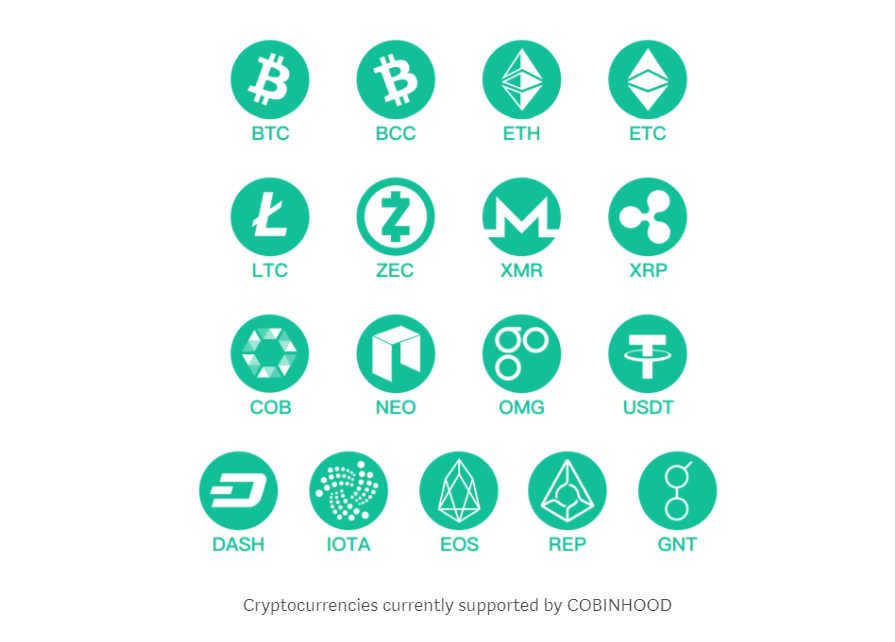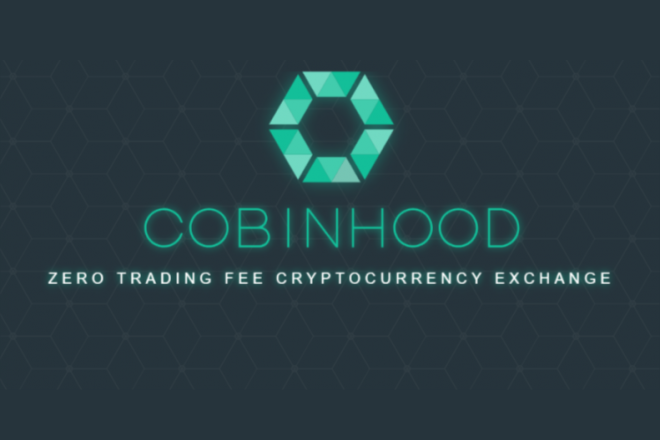Hacks, server downtime and excessive trading and transaction fees: that’s what most cryptocurrency traders and investors are dealing with nowadays. In the secure and peer-to-peer environment that blockchain technology is creating, these problems seem rather old fashioned. Decentralizing centralized exchanges is the blockchain solution to these problems.
Cobinhood is part of this new and growing movement of decentralized exchanges. During its recent ICO, which ended on October 22, Cobinhood managed to attract $13.2 million in investment.
This is not surprising as over the last few months we’ve seen multiple decentralized exchanges entering the top 100 such as Ethos and the Kyber Network, while Waves and Bitshares keep on strengthening their position in the top 50.
How Does Cobinhood Stand Out From the Rest?
No Trade Fees
In the face of all this competition, Cobinhood has a strong unique selling point: namely, traders can buy and sell on the Cobinhood exchange for zero transaction fees. If you’re a long term investor, transaction and trading fees aren’t much of your concern. However, when you are trading on a weekly and especially a daily basis, the sum of these fees can become quite a burden.
This might leave you wondering as to how Cobinhood can be profitable. Trade fees are the main source of income for the current exchanges and this source of revenue won’t be available for Cobinhood.
For Cobinhood, their main source of income will be the margin lending option. With margin lending, investors use their current portfolio as a collateral for a loan-based portfolio. Say you have $10,000 in a portfolio and you can get a margin loan for 10% collateral, which equals to a $100,000 margin loan. This means that both profits and losses are 10 times magnified, which is the leverage Cobinhood will be offering.
There’s a lot of money to be made by offering margin loans, as a lot of investors are easily attracted to these type of loans. This revenue model is likely to turn Cobinhood into a profitable exchange. However, whether it should be made this easy to take gigantic risks is an ethical dilemma that accompanies Cobinhood’s business model.
Trading Pairs
Besides having zero transaction fees, Cobinhood offers a large variety of popular cryptocurrencies. Moreover, Cobinhood aspires to create trade gateways for the most-used fiat currencies as soon as possible.
If the company can succeed in this, it will gain an advantage over a lot of centralized and decentralized exchanges that don’t offer this conversion option.

ICO Underwriting Services
Another feature of Cobinhood that deserves to be highlighted is their ICO underwriting service.
As stated on their website, launching a successful ICO is far more challenging than most organizations believe it to be. It would be a shame for high potential project to fail due to a bad ICO strategy, and Cobinhood aims to help these projects with their specialized ICO underwriting team.
This team will collaborate with the ICO project and provide them with strategic expertise to make the ICO a success. Once the ICO is finished, the token will be available directly on Cobinhood’s exchange.
Other Unique Features
If that’s not enough, Cobinhood will also offer more advanced trading options such as spot and margin trading. On most current decentralized exchanges, advanced trading options are still missing.
Also, upon its launch, the Cobinhood platform will be available in 10 languages which allows users from all over the world to use the platform in their native language. The team has also promised to deliver quality customer support. This last feature is particularly attractive as both centralized and decentralized exchanges either offer no support or sluggish and low quality customer assistance.
The Cobinhood Team
If Cobinhood can make all their propositions reality, they’ve solved nearly every problem with cryptocurrency exchanges. For a mission like this, you’re going to need a team of both quality and quantity.
Cobinhood is up to par in this area. Its young CEO, Popo Chen, has been dubbed a genius amongst Asian entrepreneurs after the success of his first company, 17 live streaming, which is a live streaming app for smartphones.
Co-founder, Wei-Ning Huang, has been working for Google for the last three years and has recently been promoted to Senior Software Engineer, while launching Cobinhood.
The fact that Cobinhood’s leadership lacks crypto experience has been compensated by its advisory board. Tony Scott is the most prominent figure. With his senior strategy and information experience with the White House, Microsoft and Disney, Scott can provide the founders with the necessary mentoring.
In addition, they have another seasoned advisor in the person of I-Cheng Liu. He has 16 years experience in the financial industry and currently fills the position of Senior Executive Vice President at the CTBC bank.
Add 14 developers and 16 legal, HR and business developers, and the Cobinhood team is complete. For a team that has just recently finished its ICO, a team sizeable team like this is impressive.

How to Purchase and Store Cobinhood
Since the Cobinhood crypto was released to the markets, it has been listed a few exchanges. EtherDelta, Mercatox and Decentrex are the only three exchanges on which you can currently buy and sell Cobinhood.
The Cobinhood token can thus far only be stored on Ethereum-based wallets since it doesn’t have its own wallet yet. Their wallet will be integrated in their decentralised exchange, once it is ready for launch.
Final Thoughts
You’ll definitely want to keep a keen eye out for Cobinhood as soon as their exchange launches! Trading without transaction fees can easily attract a lot of capital which will create a fair-priced market.
Moreover, their exchange promises to have a lot of desirable features, in particular its ease of use and free trading. Just be sure to employ careful consideration and devise a risk management strategy before getting involved in margin trading.

